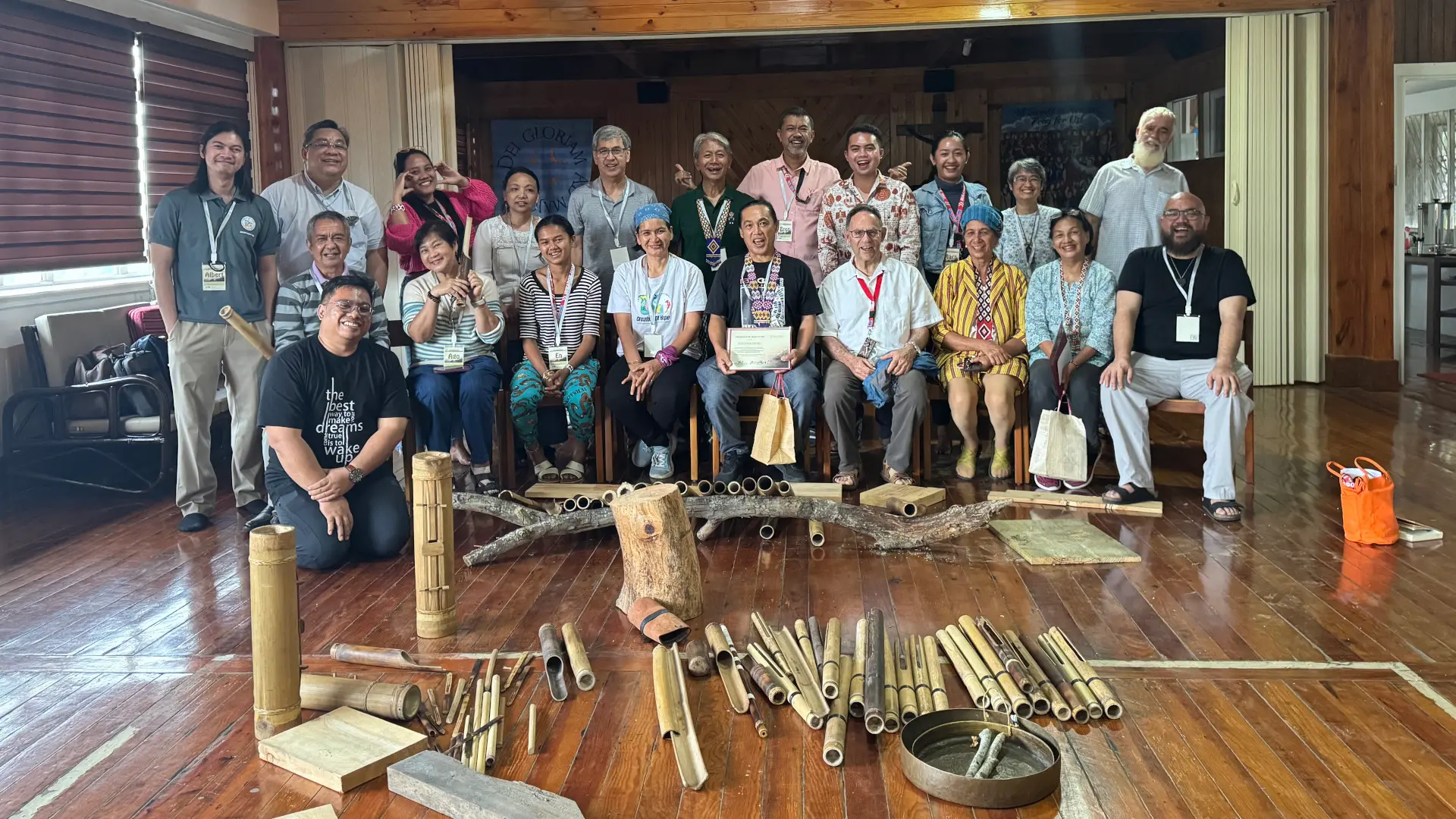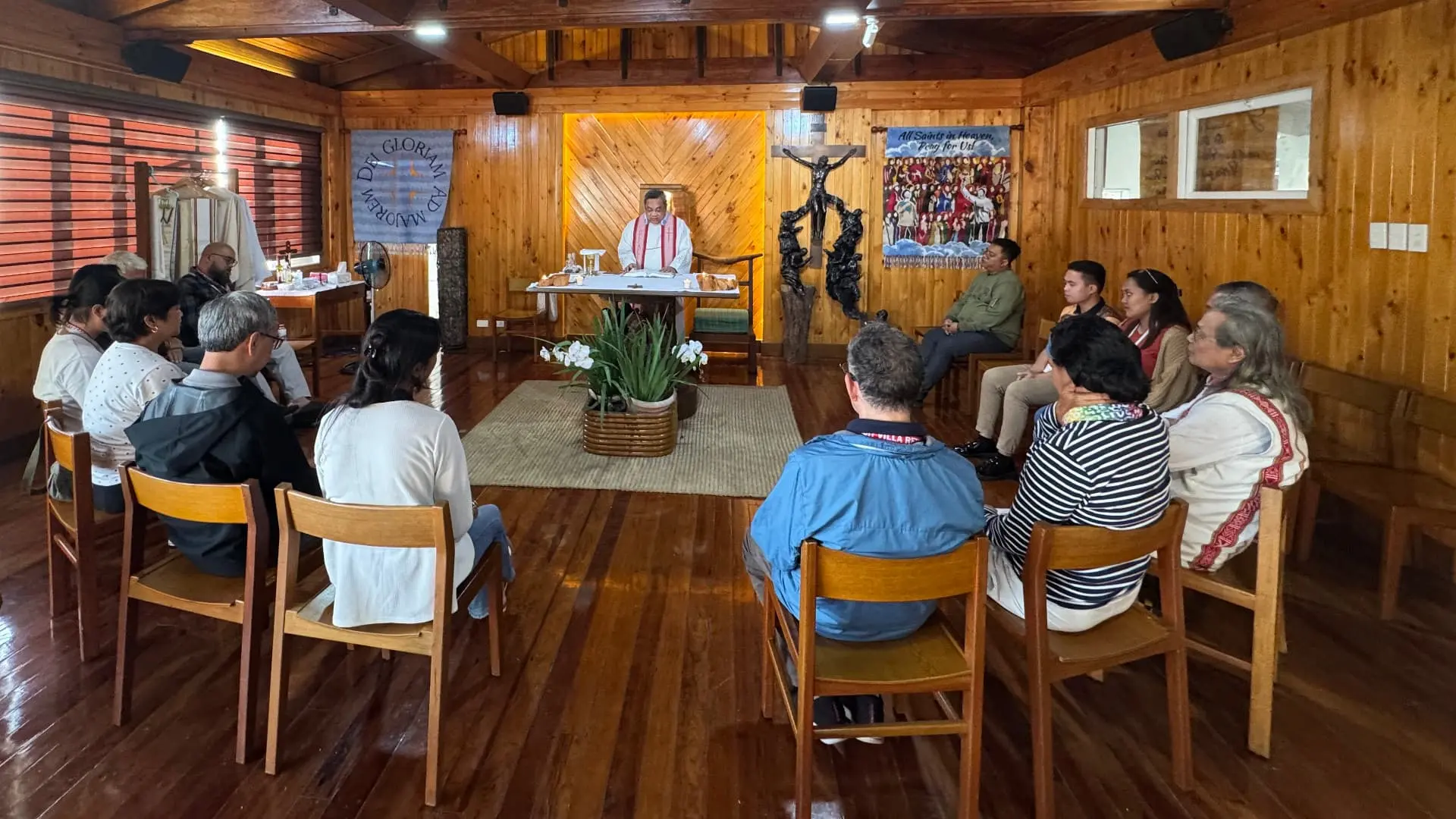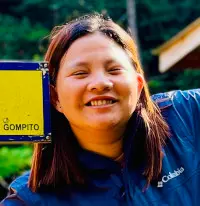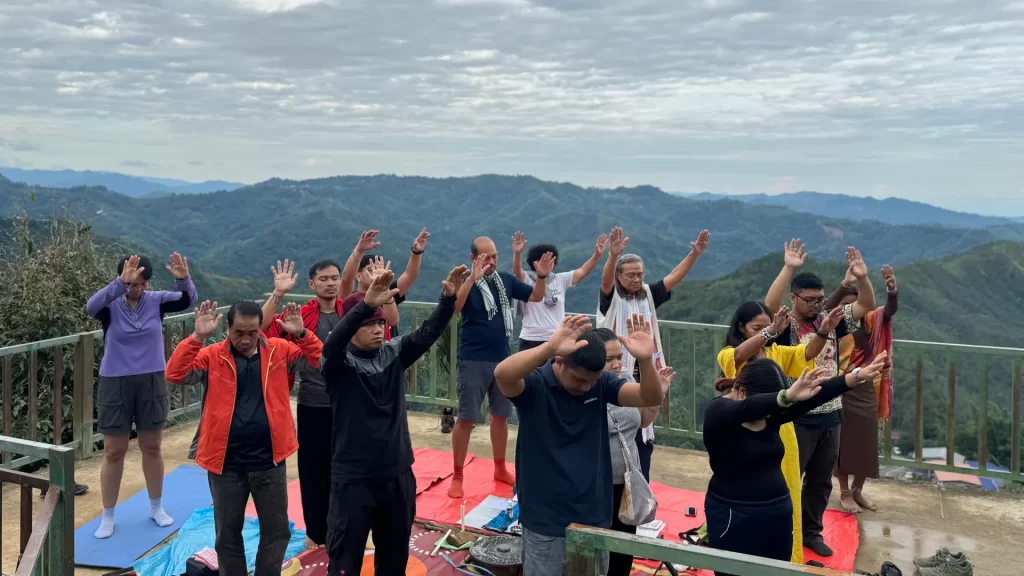
This was more than a conference—it was a sacred pause, a space to listen, honour stories, and allow the Spirit to move among us, reminding us of the enduring call to freedom, leadership, and compassion. The gathering brought together Ignatian and indigenous spiritualities into dialogue— like branches of an ancient tree, each growing in its own direction but sharing the same deep roots. In both spiritualities, presence is more than physical—it is an invitation to encounter. We did not seek conclusions or resolutions but a deeper communion.
Through prayer, storytelling, rituals, and silent walks, participants evoked the Spirit—the presence that heals, unites, and sends forth—deepening our commitment to walk alongside indigenous communities in faith and solidarity.
As the morning mist lingered over Mirador during our prayers, wrapping the retreat house in quiet reverence, companions sat in stillness, beneath the ancient trees, the sound of rustling leaves mingling with whispered prayers. A Jesuit companion reflected, “We came with questions. But the Spirit has taught us that some truths are heard in silence.”
Between shared words and sacred pauses, the presence of ancestors filled the space. Their wisdom carried in the fire’s warmth, the wind’s breath, and the stories passed from heart to heart. What emerged was not merely dialogue but solidarity—a resolve to walk together, not as observers, but as companions.
The air was still as voices carried across Mirador—some filled with quiet resolve, others heavy with sorrow. Indigenous leaders spoke of ancestral lands fading, languages slipping from memory, and traditions and values fighting to survive. Their stories did not simply recount history; they embodied it.
In those moments, grief was not a passive emotion—it was a presence that filled the spaces between words and lingered in the silences that followed. We did not turn away. We listened. The Spirit moved—not to erase suffering but to transform it.
A Cordilleran elder leaned forward, his voice steady. “Our sorrow is not weakness. It is where our spirituality is strengthened.”
Grief became witness. It did not break us—it bound us. Mourning became remembrance, and remembrance became resolve. The weight of loss became the soil where solidarity took root, urging us forward in faith and action. We stepped beyond reflection into responsibility, carrying with us a commitment not only to honour indigenous grief but to safeguard the wisdom, resilience, and future it holds.

For indigenous communities, creativity is not merely an expression; it is life and survival. Song is remembrance. Dance is reclamation. Art is resistance. In a world that has tried to erase their traditions, every melody, every movement, becomes a declaration: “We are still here.”
One youth leader stood before the gathering, her voice unwavering. “Our ancestors did not pass down silence. They passed down songs, prayers, stories—we must carry them forward.”
Their creativity became a bridge between the past and the future, lament and renewal. It carried grief but refused to be weighed down by it. It was more than expression; it was action. Through movement and music, indigenous wisdom called out—not just to be admired but to be amplified, protected, and woven into the healing of the world.
The Spirit stirred among us, reminding us that justice and beauty are inseparable and that to walk in solidarity means safeguarding not only indigenous rights but indigenous rhythms, melodies, and ways of knowing.
The call is clear: to ensure that what is threatened is reclaimed, what is silenced is heard, and what has endured continues to shape the road ahead.
This sacred pause has stirred deep interior movements, inviting us to reflect on our mission, recommit to our calling, and walk forward with renewed purpose. Emerging from this encounter is a shared affirmation of solidarity, formation, youth empowerment, and pastoral renewal—a reaffirmation of our vocation to accompany indigenous communities with depth and fidelity.
Yet, commitment alone is not enough. The Spirit calls us beyond reflection—to action, urging us to transform our resolutions into tangible steps that nurture leadership, safeguard traditions, and strengthen collaboration.
The sense of hope was palpable in the indigenous testimonies, the rhythm of the chants, the quiet remembering, our solidarity in grief, and shared silence.
We offer deep gratitude for all that has been and say a wholehearted yes to all that is to come. May our ancestors’ presence and the Spirit’s movement guide us as we continue to walk with our Indigenous sisters and brothers—toward inner freedom, leadership, and compassion.







